COVID-19 Update: May 15, 2020
COVID-19 update for Friday, May 15 as of 2:30 p.m.
Pennsylvania Update
Governor Wolf
Governor Wolf announced that 12 more counties will move to the yellow phase and begin reopening next Friday, May 22. This will bring 49 of Pennsylvania’s 67 counties into the yellow phase of partial reopening.
Department of Health
 The Department of Health has issued an order requiring nursing homes to report to the department daily beginning on May 16 the same information CMS requires these facilities to report to the CDC under the interim final rule issued on May 8. Click here for a letter from CMS to states explaining these requirements.
The Department of Health has issued an order requiring nursing homes to report to the department daily beginning on May 16 the same information CMS requires these facilities to report to the CDC under the interim final rule issued on May 8. Click here for a letter from CMS to states explaining these requirements.
Department of Health Daily Briefing
- Nearly 1000 new cases of COVID-19 brings Pennsylvania’s total to more than 60,000.
- Nearly 13,000 residents of long-term-care facilities and more than 2000 who work in 550 such facilities in 44 counties have tested positive for COVID-19.
- As have more than 4300 health care workers and nearly 2400 people who work in 150 food facilities.
- Pennsylvania has cut its case count in half in recent weeks.
- But the state is still seeing pockets of outbreaks and some parts of the state are only now beginning to show signs of declining cases.
- Secretary Levine said testing and contact tracing are working well in yellow counties.
- Secretary Levine confirmed that the state now has cases of multi-system inflammatory syndrome in children (MIS-C) associated with COVID-19. She said she has no information about how many such cases there are and where in the state these children live.
General Assembly
The House is scheduled to reconvene next Monday and the Senate canceled its session for next week.
Federal Update
Centers for Medicare & Medicaid Services
 CMS released a bulletin that gives guidance to states on how to temporarily modify provider payment methodologies and capitation rates under their Medicaid managed care contracts to address the impact of the COVID-19 emergency while preserving systems of care and access to services for Medicaid beneficiaries. See CMS’s announcement of the bulletin here and find the bulletin itself here.
CMS released a bulletin that gives guidance to states on how to temporarily modify provider payment methodologies and capitation rates under their Medicaid managed care contracts to address the impact of the COVID-19 emergency while preserving systems of care and access to services for Medicaid beneficiaries. See CMS’s announcement of the bulletin here and find the bulletin itself here.- CMS updated its COVID-19 FAQ on Medicare fee-for-serving billing with new information about accountable care organizations that terminate their Shared Savings Program agreement (p. 40).
- HHS’s Office of the Inspector General updated its FAQ addressing how it will apply its administrative enforcement authorities to arrangements directly connected to the COVID-19 public health emergency. The new information makes clear the circumstances under which a physician group that contracts with a nursing home to provide care to its residents could furnish protective face masks to the nursing home at no or reduced cost during the COVID-19 crisis.
- HHS’s Office of Civil Rights published a notice of enforcement discretion informing interested parties that it will not impose penalties for non-compliance with regulatory requirements under the HIPAA rules against covered health care providers and their business associates in connection with their good-faith participation in the operation of a community-based testing site during the public health emergency.
- In the past week CMS issued 13 section 1135 waivers to give states greater flexibility to serve their Medicaid beneficiaries during the COVID-19 public health emergency. The states receiving waivers this week are Alabama, Alaska, California, Connecticut, Georgia, Indiana, Louisiana, Massachusetts, Minnesota, Missouri, Nebraska, and Oregon and the District of Columbia.
- CMS posted a message announcing temporary changes in its Medicare Diabetes Prevention Program as a result of the COVID-19 crisis.
- CMS issued a call for nominations for individuals to serve on its Coronavirus Commission on Safety and Quality in Nursing Homes. The commission process will be led by a contractor that will, among other things, manage the nomination and selection of commission members.
Department of Health and Human Services
HHS and its Agency for Healthcare Research and Quality (AHRQ) will award $5 million in fiscal year 2020 to support novel, high-impact studies that evaluate the responsiveness of health care delivery systems, health care professionals, and the overall U.S. health care system to the COVID-19 pandemic. See HHS’s announcement of the grant program here and find the full funding announcement here.
Centers for Disease Control and Prevention
The CDC issued a health advisory through its health alert network with background information on several cases of a recently reported multi-system inflammatory syndrome in children (MIS-C) associated with COVID-19. The advisory includes a case definition for this syndrome and the CDC’s recommendation that providers report any patient who meets the case definition to local, state, and territorial health departments to enhance knowledge of risk factors, pathogenesis, clinical course, and treatment of this syndrome.
Food and Drug Administration
 The FDA issued a news release alerting the public to early data that suggests potentially inaccurate results from using the Abbott ID NOW point-of-care test to diagnose COVID-19. Specifically, the test may return false negative results.
The FDA issued a news release alerting the public to early data that suggests potentially inaccurate results from using the Abbott ID NOW point-of-care test to diagnose COVID-19. Specifically, the test may return false negative results.
- The FDA issued an update to its guidance for pharmacy compounders that experience shortages of the personal protective equipment they typically use to compound human drugs that are intended or expected to be sterile. In the update, FDA clarifies that drugs can be compounded under the policy in a segregated compounding area that is not in a cleanroom when specific beyond-use dates are used.
Resources to Consult
Pennsylvania Department of Human Services
Pennsylvania Department of Health
Centers for Disease Control and Prevention
(To receive this daily update directly, sign up for our mailing list at info@pasafetynet.org.)
 With 275 new deaths to report, most of which are the result of reconciling past case data, Pennsylvania’s COVID-19 death toll now exceeds 4000 people. All were adults.
With 275 new deaths to report, most of which are the result of reconciling past case data, Pennsylvania’s COVID-19 death toll now exceeds 4000 people. All were adults. HHS is sending out its largest distribution of remdesivir this week. As of this week, HHS will have sent out 40 percent of its current supply. The drug is being sent to state health departments, which will distribute it to hospitals. Hospitals are being asked to
HHS is sending out its largest distribution of remdesivir this week. As of this week, HHS will have sent out 40 percent of its current supply. The drug is being sent to state health departments, which will distribute it to hospitals. Hospitals are being asked to 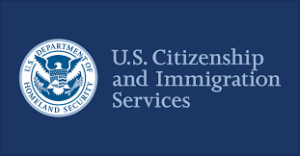 The U.S. Citizenship and Immigration Services has issued a policy memorandum describing
The U.S. Citizenship and Immigration Services has issued a policy memorandum describing 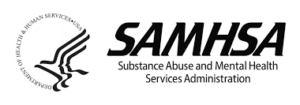 SAMHSA is inviting applications for $40 million in grants to support states and communities during the COVID-19 pandemic in advancing efforts to prevent suicide and suicide attempts
SAMHSA is inviting applications for $40 million in grants to support states and communities during the COVID-19 pandemic in advancing efforts to prevent suicide and suicide attempts Yesterday the Senate unanimously passed
Yesterday the Senate unanimously passed 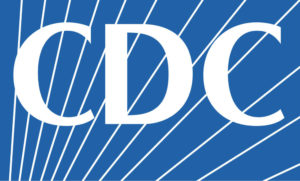 The CDC has updated its
The CDC has updated its  Government Accountability Office
Government Accountability Office Department of Health Daily Briefing
Department of Health Daily Briefing OLTL has issued a reminder to OLTL-regulated programs operating in counties that are moving from red to yellow that previous guidance that applied to those programs remains in effect. Specifically:
OLTL has issued a reminder to OLTL-regulated programs operating in counties that are moving from red to yellow that previous guidance that applied to those programs remains in effect. Specifically: $100 billion for eligible health care providers to be distributed through the Health Care Provider Relief Fund. This is in addition to the $175 billion Congress has already appropriated for providers. This bill would include a prescriptive and structured methodology for distribution of the Health Care Provider Relief Fund that would include, among other things:
$100 billion for eligible health care providers to be distributed through the Health Care Provider Relief Fund. This is in addition to the $175 billion Congress has already appropriated for providers. This bill would include a prescriptive and structured methodology for distribution of the Health Care Provider Relief Fund that would include, among other things: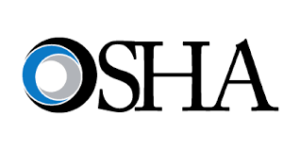 Occupational Safety and Health Administration
Occupational Safety and Health Administration The CDC has published
The CDC has published  Governor Wolf announced that
Governor Wolf announced that  The Department of State has published a notice that it will permit
The Department of State has published a notice that it will permit  Department of Human Services
Department of Human Services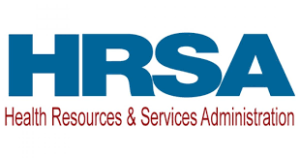 HHS’s Health Resources and Services Administration, which is administering the program through which providers can be reimbursed for COVID-19-related services they provide to uninsured patients, has
HHS’s Health Resources and Services Administration, which is administering the program through which providers can be reimbursed for COVID-19-related services they provide to uninsured patients, has 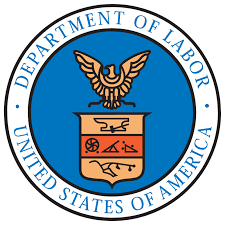 The Department of Labor has issued additional guidance about 100 percent federal reimbursement of certain state short-term compensation payments and other changes in short-term compensation programs. The guidance seeks to address “…how states can take advantage of this program as they look to re-open their businesses.” For further information see the department’s
The Department of Labor has issued additional guidance about 100 percent federal reimbursement of certain state short-term compensation payments and other changes in short-term compensation programs. The guidance seeks to address “…how states can take advantage of this program as they look to re-open their businesses.” For further information see the department’s